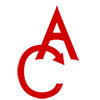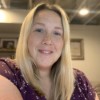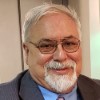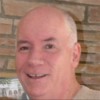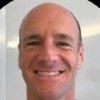Explore Sessions
-
Registration
Come early to avoid the crowds and enjoy our morning snacks and drinks.
- Time:7:00 am - 8:00 am
- Venue:Registration Desk
-
Opening Ceremony
Join the Agile Cincy Team as they get the crowd on their feet talking about the exciting event to come! You won't want to miss this opening ceremony. There will be a special tribute that you'll not want to miss.
- Time:8:00 am - 8:30 am
- Venue:Northern Lights Ballroom
-
Keynote: Change your game to impact; Find your shovel & dig
They say no two people are alike, however, one thing we all have in common is we constantly look for change and we want it now! We find ourselves trying to continuously discover the latest and greatest way to change the way we eat, change the way we live, and change the way we work. All these fast attempts to change become exhausting and lead to stress. Then once the crisis is over it's back to how it was and people become deflated. This keynote will take you through a deeper sense of finding your purpose when making a change. Through storytelling and humor, Kim will share strategies to help you improve your game to become a game-changer and inspire the builders of tomorrow.
- Time:8:30 am - 9:20 am
- Venue:Northern Lights Ballroom
-
Breakout 1 Sessions
Kim Antelo - Workshop: How to Wrangle a Transformation
Wrangling an Agile transformation can be a daunting task. Leaders know they want the benefits of agility, but don’t know how to get there or what is involved. In this session, Kim Antelo will teach you how to enable transformation leaders to take ownership of their Agile transformation. You’ll learn how to help leaders build a transformation backlog based on what business outcomes the organization wants to achieve and how to measure transformation progress against those outcomes.
- Time:9:35 am - 11:30 am
- Venue:Room 201/202
Betsy Irizarry - Workshop: The Dictionary Game: Hands-On Fun with Flow!
Do you ever feel like you and your team are really rocking it… but somehow, something consistently goes wrong with the ultimate delivery of customer value? Are you frustrated or flabbergasted by why your agile practices and continuous improvement efforts fail to measurably improve outcomes?
Join us for this fun, interactive workshop where we will play a hands-on game to explore some fundamental features of flow. Along the way, we will collectively reflect on how common flow anti-patterns show up in our organizations today. By the end of the game, you might find ways to look at some of your current challenges with a fresh perspective – and walk away with some flow improvement ideas to try in your own workplace.
- Time:9:35 am - 11:30 am
- Venue:Room 203/204
Joel Tosi - Breakout: Growing a Learning Organization
How do you grow a continuously learning organization? If certifications and wikis were enough, organizations would be crushing it.
This session is an evolution of our talks around growing Dojos (though awareness of dojos is not necessary for this talk).
In this session we will look at the challenges facing organizations and people today trying to learn new skills (committment, context, multitude of needs).
From there we will look at how we learn exploring explicit vs tacit knowledge.
We will wrap up with tangible ways you can start growing an organization that continuously learns - looking at addressing the whole value stream to provide context and growing an organization that has internal coaches and teachers (along with models for that).
Our upcoming book (late summer 2022) will be based on coaching for learning.
- Time:9:35 am - 10:25 am
- Venue:Room 101/102
Dr. Charles Suscheck - Breakout: Scrum Commitments – Product Goal, Sprint Goal, Definition of Done
In 2020, the Scrum Guide introduced commitments, one for each artifact: the Definition of Done, the Sprint Goal, and the Product Goal. Of the three,
Sprint Goal and Definition of Done have been around for quite some time, and the Product Goal is new. These three commitments become the “why” behind their related artifacts. This presentation will present examples (positive and negative) of each of the commitments. Techniques for crafting and applying impactful Scrum commitments will also be explained. At the end of the presentation you will not only understand the Scrum goals, but you’ll be able to create and use them.- Time:9:35 am - 10:25 am
- Venue:Room 103
Kim McGill - Breakout: Burned out on Burndown: The Journey to Meaningful Metrics
For years, Agile teams have used metrics like velocity and burn downs to measure their effectiveness. While those metrics have a place in team building and team maturity, most common Scrum metrics paint an incomplete picture of the overall delivery effectiveness and the actual value delivered. In this conversation, we will present a set of quantitative and qualitative metrics that, when combined, can tell a more complete story, improve the ability to see a more holistic view of opportunities and guide us to meaningful, measurable areas for improvement.
- Time:9:35 am - 10:25 am
- Venue:Room 104
Bob Tarne - Breakout: What is Systems Coaching and Why Do We Need It
Coaching is a popular technique in agile. Anyone with a little experience as a Scrum Master can call themselves a coach, but successful coaching requires much more. This presentation will look at the tools and techniques of Organization and Relationship Systems Coaching (ORSC™️) and why coaching the system is important in agile transformations.
For this presentation, I will explore the tools and techniques of systems coaching. As a fully trained ORSC coach, my training and experience will allow me to introduce this emerging technique to the audience. I will discuss why it is important to coach to the system and look at the tools and skills that are part of the ORSC landscape.
- Time:9:35 am - 10:25 am
- Venue:Room 105
-
Breakout 2 Sessions
Kim Antelo - Workshop: How to Wrangle a Transformation
Wrangling an Agile transformation can be a daunting task. Leaders know they want the benefits of agility, but don’t know how to get there or what is involved. In this session, Kim Antelo will teach you how to enable transformation leaders to take ownership of their Agile transformation. You’ll learn how to help leaders build a transformation backlog based on what business outcomes the organization wants to achieve and how to measure transformation progress against those outcomes.
- Time:9:35 am - 11:30 am
- Venue:Room 201/202
Betsy Irizarry - Workshop: The Dictionary Game: Hands-On Fun with Flow!
Do you ever feel like you and your team are really rocking it… but somehow, something consistently goes wrong with the ultimate delivery of customer value? Are you frustrated or flabbergasted by why your agile practices and continuous improvement efforts fail to measurably improve outcomes?
Join us for this fun, interactive workshop where we will play a hands-on game to explore some fundamental features of flow. Along the way, we will collectively reflect on how common flow anti-patterns show up in our organizations today. By the end of the game, you might find ways to look at some of your current challenges with a fresh perspective – and walk away with some flow improvement ideas to try in your own workplace.
- Time:9:35 am - 11:30 am
- Venue:Room 203/204
Stef Hogan - Breakout: How to build high performing, remote, agile teams
The world is different since Covid and now more than ever, it is important to understand how to build high performing teams that are also remote. I’ve worked a majority of my career with remote teams across different time-zones and have learned quite a bit on how to succeed despite the challenges of being remote.
- Time:10:40 am - 11:30 am
- Venue:Room 101/102
Brett Buchanan - Breakout: Using Data to Create your Product Strategy
The way businesses are being built is shifting right before our eyes. Hyper-growth start-ups are driving established companies out of the Fortune 500 and disrupting entire industries. Establish enterprises are completely rethinking their business model. How strategy is set and deployed is key to success.
- Time:10:40 am - 11:30 am
- Venue:Room 103
Thomas Haver - Breakout: Example Mapping: The New Three Amigos
Example Mapping is a collaboration technique used by teams to help refine requirements. Every team should have a set of “ready” criteria that includes some kind of workshop between development team members to establish a shared understanding. In a time-boxed Example Mapping session, rules will summarize examples or constraints about a user story, and questions about outcomes or dependencies are documented for future refinement. The end result are requirements written as user behavior with a shared understanding among all roles on an Agile team. The audience will participate in a live Example Mapping session and learn how to implement the workshop within their own team.
- Time:10:40 am - 11:30 am
- Venue:Room 104
-
Lunch / Sponsor Visit
- Time:11:30 am - 12:20 pm
- Venue:Northern Lights Ballroom
-
Keynote: Overcoming Uncomfortable Conversations
A central behavior of all great teams is the ability to engage in healthy conflict. Yet conflict continues to be one of the least modeled leadership skills. This talk addresses head-on why most everyone dislikes conflict and how to overcome the powerful temptation to avoid it. It offers a simple plan that anyone can use to effectively initiate an uncomfortable conversation, directly address unwelcome behavior and clarify what must change—all while maintaining safety and dignity.
- Time:12:20 pm - 1:10 pm
- Venue:Northern Lights Ballroom
-
Breakout 3 Sessions
Faye Thompson - Workshop: Roadmap for a Product Career
Looking for your next career challenge, and not sure in which direction you should head? Let's explore some of the paths available in the business analysis and product world.
In this interactive workshop, we will use a career planning canvas to identify where we are today, and to begin to consider where we might like to go next. Then we'll discuss typical roles associated with these disciplines, the skillsets needed for each, and some ways to grow and strengthen those competencies. Participants will leave with a starter roadmap of next steps to take toward fulfilling their career aspirations.
- Time:1:25 pm - 3:20 pm
- Venue:Room 201/202
Matt Kirilov - Workshop: KPIs to Nowhere: The String Point Game
I was presenting on KPIs at Global Scrum Gathering in Portugal earlier this when I found out that somebody had done a similar talk the previous day of the conference. In my quest to come up with a KPI talk that is different, yet original and practical I came up with an in-person game where in 1 hour we create a mock corporation with different audience participants representing different leaders and teams within an organization. We use large stick-it notes to annotate the roles and create sample OKRs for each role/team. Then we connect all roles with a string held by different people. Much like the ball point game, I manipulate the flow of the OKRs by cutting the string, moving roles around, and overlapping OKR string with business strategy and HR policy string - provoking the audience and participants to think of solutions. This demonstration goes from people chuckling in the first 5 minutes to nodding hands as soon as dysfunctions and contradictions start flowing in. Lessons and suggestions like OCM needs, descaling, ghost roles, etc. start flowing in. When I did this exercise I received feedback like: "I realized the diagnostic nature of OKRs and see them as such for the first time"
- Time:1:25 pm - 3:20 pm
- Venue:Room 203/204
Rich Theil - Breakout: Quickly Creating Psychological Safety During Team Change
What if your team blazed past the stress of the pandemic, complexities of remote work, and the great resignation without missing a beat? What if they went beyond efficiency & simply being nice to each other to truly challenging each other? You’d get more innovation, better relationships, increased productivity, and more resilience. All for free.
This talk introduces a critical framework for how psychological safety develops. With this framework, you can develop it more quickly and take it further than you ever thought possible. You can create a team who has the courage to challenge each other while unlocking both innovation and productivity.
We’ll talk about what must be in place at each stage of developing safety. We’ll use the scenario of adding a new person to a team to help understand the full lifecycle of developing safety. We’ll talk about how trust starts low and builds over time. We’ll define psychological safety, share why it matters (it’s not what most think), and provide an array of practical tools for talking about and increasing psychological safety on your team(s).
Whether you’re adding or removing people, facing a team that won’t talk, or just looking to take your team to the next level, you’ll identify new ways to help them grow.
- Time:1:25 pm - 2:15 pm
- Venue:Room 101/102
Liz Rettig - Breakout: Build your Sprint Sundae- From Product Backlog to Sprint Goal
One of the hardest things to do for a new Scrum Team is figuring out a Sprint Goal. Sure, that may sound easy, but many times with a new team, their Product Backlog is still being ordered and the Product Owner is still figuring out how to create an ordered backlog that just makes sense. There are several things that go into actually being able to make a good spring goal. The analogy I like to use is “we are building a sundae” in Sprint Planning. In a sundae a good portion of it is a scoop of ice cream, this is your sprint goal, everything else you put into your sprint is just toppings. So, when we sit down to our planning, we can ask ourselves “What’s our scoop of ice cream this sprint?”.
To get to your scoop, we need to consider the Product Goals, the order of the backlog, how we are planning our sprint, and the structure of the sprint goal.
- Time:1:25 pm - 2:15 pm
- Venue:Room 103
Donald Mark Haynes - Breakout: Hold My Beer – We’re Going ScrumBan!
What does it mean to blend two frameworks such as Scrum and Lean Kanban? Does it even make sense? Hold my beer – we’re going Scrumban! We’ll identify reasons you might consider a blending, discuss the foundational principles to keep in mind if you do and explore how you might overlay Lean Kanban attributes on your Scrum team. It’s going to be a wild, hybrid framework ride.
Hybrid methodologies are often an exercise in cherry-picking or happenstance. It’s problematical at best. The basis of this discussion is to identify foundational principles of both Scrum and Lean Kanban and explore the specific considerations you might consider for a blending. When considering changing dynamic and complex processes it’s vital to first understand what foundational principles are being impacted. It’s similar to coaching a professional sports team. First, you start with the fundamentals. This will not be an in-depth discussion of what it means to be Scrum or Lean Kanban but rather a survey of both frameworks with an eye towards their blending.
- Time:1:25 pm - 2:15 pm
- Venue:Room 104
Nathan Miller - Breakout: How to Host a Kick A$$ Retrospective
I want to provide some data gathered from the 15th Annual State of Agile around Retrospectives. First, I want to point out where agile ranks the retrospective meetings. I then want to go into an exercise with the audience through a retro-type experience to bring home the importance of a retrospective meeting and how to take them to the next level. We don't want retrospectives to be where improvement ideas go to die but rather a space to document the action items and then create an improvement backlog of experiments.
- Time:1:25 pm - 2:15 pm
- Venue:Room 105
-
Breakout 4 Sessions
Faye Thompson - Workshop: Roadmap for a Product Career
Looking for your next career challenge, and not sure in which direction you should head? Let's explore some of the paths available in the business analysis and product world.
In this interactive workshop, we will use a career planning canvas to identify where we are today, and to begin to consider where we might like to go next. Then we'll discuss typical roles associated with these disciplines, the skillsets needed for each, and some ways to grow and strengthen those competencies. Participants will leave with a starter roadmap of next steps to take toward fulfilling their career aspirations.
- Time:1:25 pm - 3:20 pm
- Venue:Room 201/202
Matt Kirilov - Workshop: KPIs to Nowhere: The String Point Game
I was presenting on KPIs at Global Scrum Gathering in Portugal earlier this when I found out that somebody had done a similar talk the previous day of the conference. In my quest to come up with a KPI talk that is different, yet original and practical I came up with an in-person game where in 1 hour we create a mock corporation with different audience participants representing different leaders and teams within an organization. We use large stick-it notes to annotate the roles and create sample OKRs for each role/team. Then we connect all roles with a string held by different people. Much like the ball point game, I manipulate the flow of the OKRs by cutting the string, moving roles around, and overlapping OKR string with business strategy and HR policy string - provoking the audience and participants to think of solutions. This demonstration goes from people chuckling in the first 5 minutes to nodding hands as soon as dysfunctions and contradictions start flowing in. Lessons and suggestions like OCM needs, descaling, ghost roles, etc. start flowing in. When I did this exercise I received feedback like: "I realized the diagnostic nature of OKRs and see them as such for the first time"
- Time:1:25 pm - 3:20 pm
- Venue:Room 203/204
Scott Schnier - Breakout: The Seven Date Driven Sins
Date driven behaviors are common in many pre-agile organizations. They are as bad as sin and produce bad outcomes when considered through a long range lens. This presentation targeted to managers and leaders in organizations in the early stages of agile transformation. Scott will lead an entertaining and provocative look at how classical date driven behaviors often produce outcomes that are the opposite of what those leaders ultimately desire. Scott will suggest an experiment to focus on the virtue of frequently delivering incremental value as an alternative to those date driven sins.
- Time:2:30 pm - 3:20 pm
- Venue:Room 101/102
Dan Rice - Breakout: Value Stream Management organize and execute for successful outcomes
Imagine delivering on your company's strategy, disrupting your competition, leading in the markets you serve, and delighting your customers. In this talk, we’ll explore success patterns of value stream management, allowing you to organize around value, steer based on data and delight your customers and stakeholders. Your competitors are Google, Amazon, and Apple, whether you realize it or not.
- Time:2:30 pm - 3:20 pm
- Venue:Room 103
Nate Meyers - Breakout: Stop getting nowhere fast
Have you ever been a part of a failed Agile Transformation? Perhaps you’ve even seen the same company fail more than once. This most likely started with creating a bunch of new teams, swearing allegiance to the Scrum Guide, and most importantly, overusing the word Agile. In the end, companies are often forced to start over having lost valuable time and credibility simply because core elements were never established.
In this session, I’ll discuss three pre-Agile tenants that you can leverage as a foundation to your transformation and avoid running on your own hamster wheel.
- Time:2:30 pm - 3:20 pm
- Venue:Room 104
Rita Emmons - Breakout: You’re the problem: Re-wire your brain in time for the next change initiative
It should come as no surprise when even the most exciting initiatives are met with opposition, skepticism, or worse, ambivalence. Bottom line: Change is hard. Perhaps you’ve spent countless hours on strategy, change management plans, and communications. Still to face the ultimate angst of impending resistance. Consider the following, what if you are the problem?
In this session, we will break down the neuroscience behind how the brain’s response to uncertainty manifests itself into actions and behaviors. Then through self-reflection, dive into your leadership style and blind spots that may be thwarting your ability to influence and drive change. Resistance is neither futile, nor a battle to be won. Its an opportunity to adapt, innovate and learn.
- Time:2:30 pm - 3:20 pm
- Venue:Room 105
-
Keynote: Make Today’s Energy Evergreen
Too often at conferences and summits, we come away with energy, ideas, and new connections, and then fail to follow through, Those new ideas never get implemented. Those new connections fail to grow into deeper relationships. The excitement fades and the energy ebbs.
You face the same dilemma when you present new ideas, techniques, and methodologies in your organization. The energy created in the moment dissipates quickly in the rush of everyday work demands.
In this interactive keynote presentation, Kris Taylor will share six proven techniques to distill key takeaways from today’s conference and move them from idea to action. Drawn from practices Kris uses in her high-impact retreats, group coaching, and training, you will come away with focus, clarity, and motivation to yield a lasting benefit from today’s conference.
Even better, Kris will share “behind-the-scenes” facilitation techniques so that you, too, can incorporate them into your work, creating higher impact, deeper engagement, and fostering progress and commitment.
- Time:3:35 pm - 4:25 pm
- Venue:Northern Lights Ballroom
-
Closing And Raffle
The AC crew will close the event with some laughs and prizes.
- Time:4:25 pm - 4:55 pm
- Venue:Northern Lights Ballroom
